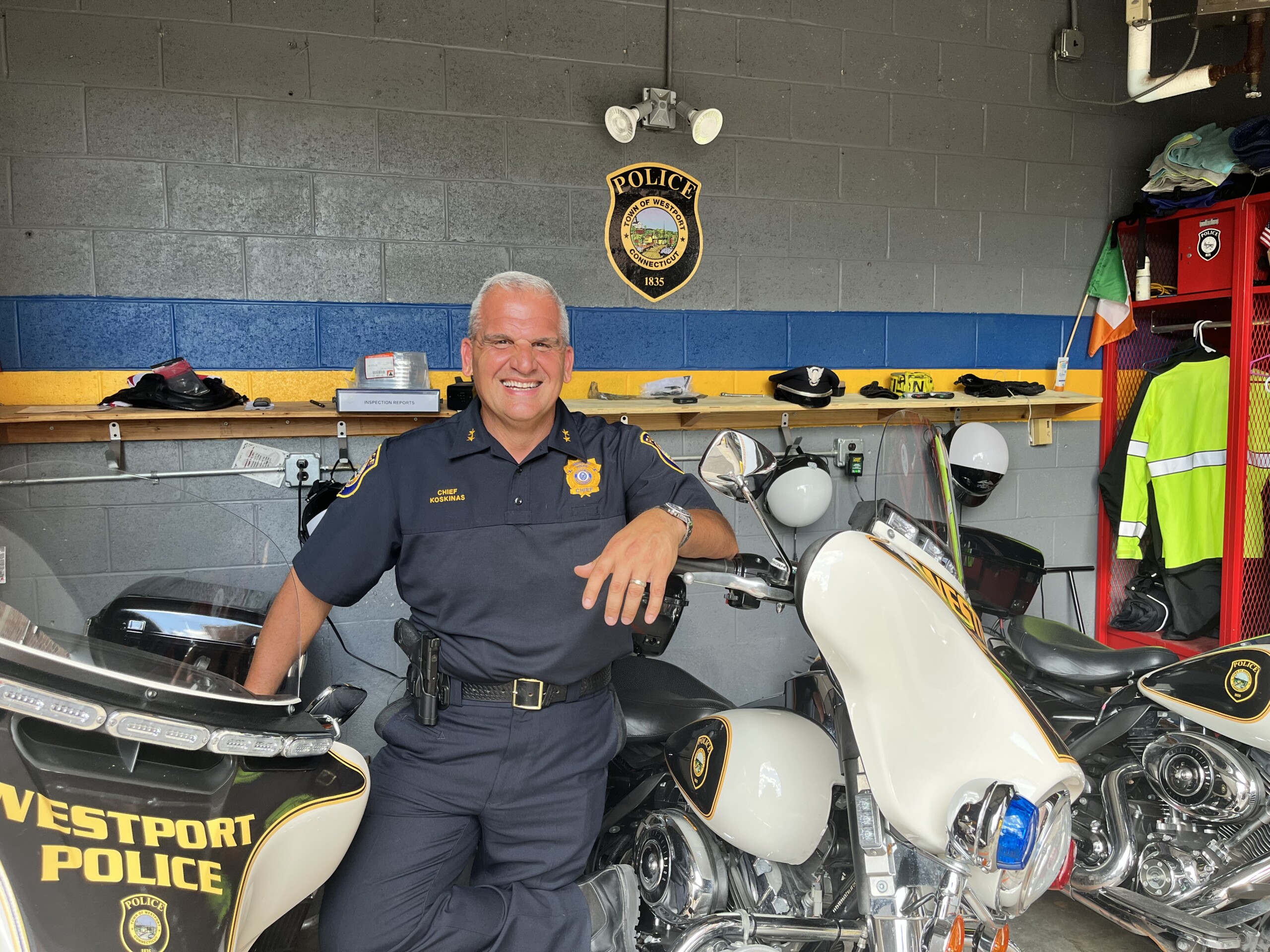This police chief’s reforms could be a model for other communities
(CNN) — Police encounters with people dealing with mental health issues can go very wrong, very quickly. Often, the presence of a law enforcement officer can escalate the situation.
“A lot of people with special needs may not react very well to a police in uniform, but they may just react very well if a grandparent gets on the phone,” said Westport, Connecticut Police Chief Fotios “Foti” Koskinas.
That’s why Koskinas’ department has partnered with local organizations to set up a voluntary registry for family and friends of people with mental health challenges, such as schizophrenia, who may panic or seem violent when approached by police.
The registry allows relatives or friends to flag anyone who might benefit from additional support — and provide information about how to best de-escalate any situations with them.
As soon as police get a call, the computer will flag any person who is on the registry by name and address. Additional information about ways to communicate with a person at that address, including contact information for relatives, is available to a responding officer before reaching the person’s front door.
Koskinas’ officers also undergo critical incident training focusing on dealing with mental health and substance abuse issues. They practice defusing volatile situations using alternatives other than force.
“We prepare for storms. We prepare for an active shooter. We prepare for traffic accidents. We prepare for a hazardous material incidents,” Koskinas said. It’s equally important, he explained, to prepare for any kind of situation with a citizen with mental health issues.
Under Koskinas’ leadership, the Westport Police Department has instituted a number of programs to improve its relationship with the community and protect both citizens and officers from negative encounters.
“We started our body camera program in 2014. We were one of the first in Connecticut, if not the first, to wear body cameras,” the chief said. “Fast forward to 2020 when everybody’s saying body cameras provide accountability. We, as the Westport Police Department, were able to say: ‘Well that’s great. Not only do we support it, but we’ve been doing it for six years.’”
Years before the 2020 fatal arrest of George Floyd and the police reforms that followed, Koskinas started implementing strict rules around chokeholds in his department.
He’s also put an emphasis on community policing. When high school is in session, Westport police participate in “Dodge-A-Cop” dodgeball games with local teens. During the summer, the department switches to cornhole games in the park. Both programs put police officers right alongside local teens, getting to know them in a friendly environment.
Where that really helps, according to Koskinas, is creating trust in the event of an emergency.
“It’s really good when the police officers see the kids and everybody knows each other by first name. It doesn’t have to always be ‘Officer,’ ” the chief said. “We’ve had real lockdowns. These kids have had the comfort to go to the school resource officer … and say: ‘We have a relationship with the police, and I am concerned about this.’”
Koskinas says his experience as an immigrant shapes the way he thinks and informs the way he runs his police department. He first arrived in Westport at age 11, speaking no English. His Greek parents tried everything to get him to learn the language before they moved to the US — but he admits he “fought them every bit of the way.”
Though Koskinas is quick to acknowledge he had a much easier transition than many immigrants, not speaking any English gave him insight into what being an “outsider” can feel like.
“He looks at things differently,” says Jennifer Tooker, Westport’s First Selectwoman. “When he thinks about solutions, he always thinks about everybody winning. And I think that’s amazing in a police chief and in a leader.”
Ultimately, it’s Koskinas’ visibility and community outreach that may be his most important contribution to Westport. Even small children know about “Chief Foti.”
“He’s in the community, he’s everywhere all the time,” said Dan Woog, a community activist who runs a local blog.
“And he’s all in… little kids know him, they say ‘Foti!’ Who calls the police chief by his nickname?”
